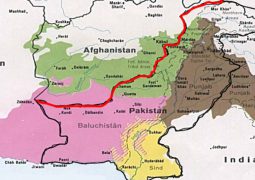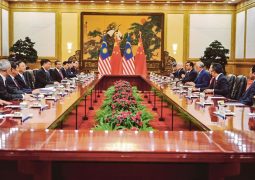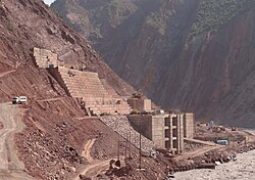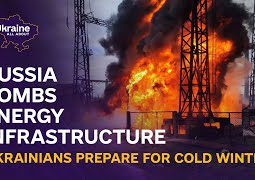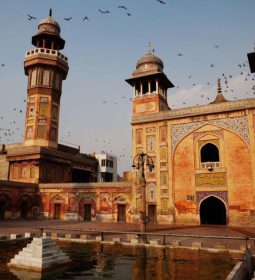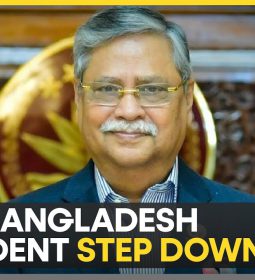Are Russia and Turkey making deals or parting ways in Syria?
Are Russia and Turkey making deals or parting ways in Syria?
The recent escalation in Idlib demonstrates that Russia and Turkey are increasingly unable to agree on Syria.
Joe Macaron by Joe Macaron
![Russian President Vladimir Putin speaks with Turkish President Recep Tayyip Erdogan during their meeting in Moscow on April 8, 2019 [Reuters/Maxim Shipenkov]](https://www.aljazeera.com/mritems/imagecache/mbdxxlarge/mritems/Images/2019/5/15/cebe3219b4a248098f567febefe7a970_18.jpg)
Syrian troops capture strategic town from rebels: Residents
last week
Over the past few weeks, northwest Syria witnessed yet another serious military escalation. Russian and Syrian regime forces unleashed a deadly campaign of bombardment on parts of Idlib, Aleppo and Hama provinces, after two attacks by Hay’et Tahrir al-Sham (HTS), an armed group formerly linked to al-Qaeda, killed 22 pro-regime fighters on April 27.
The recent escalation was the most significant one since Moscow and Ankara reached a tentative deal to avert a ground offensive by establishing a demilitarised zone in rebel-held areas in the northwest last September. Over the past few months, the terms of the agreement have been repeatedly violated, with bombardment and sporadic clashes killing close to 500 civilians, according to the Syrian Observatory for Human Rights.
Turkish troops were also targeted in two separate incidents in early May. Syrian regime forces shelled a Turkish observation post in northern Hama province, while Kurdish fighters from the People’s Protection Units (YPG) attacked Turkish positions near Tel Rifaat, northern Aleppo province, killing one Turkish soldier.
These attacks and the developments that followed demonstrate that significant cracks are appearing in the Russian-Turkish alliance, as the two sides struggle to implement the agreed ceasefires.
So far Russia and Turkey have pinned their cooperation in Syria on the common interest of containing United States pressure. Yet major differences have become increasingly difficult to ignore: Moscow has run out of patience with Ankara and its inability to rein in HTS and secure the full implementation of the demilitarised zone, while the Turkish side has grown frustrated that Russian promises to push the YPG out of Tel Rifaat have remained unfulfilled.
As the two are increasingly unable to agree on the way forward in Syria, Turkey has been trying to “play” both Russia and the US to secure its interests east and west of the Euphrates River.
The latest military escalation was preceded by two recent developments which further deepened the distrust between Moscow and Ankara.
On April 25-26, yet another round of Astana talks between Russia, Turkey and Iran were held which failed to produce a breakthrough. Moscow had hoped Ankara would help push through the formation of a joint constitutional committee between the regime and the opposition in order to advance the Syrian peace talks, but an agreement could not be reached.
Then on May 2, Turkish Foreign Minister Mevlut Cavusoglu announced that Ankara and Washington were getting close to establishing a “security zone” east of the Euphrates River, along the Syrian-Turkish border. Cavusoglu’s statement likely upset Moscow, which decided to up the pressure on the two main areas of Turkish concern: Tel Rifaat and Idlib.
Tel Rifaat lies within a small triangle in northern Aleppo province (west of the Euphrates River), which the YPG managed to retain control over after a Turkish military operation expelled its forces from nearby Afrin in 2018. The area is not contiguous to the rest of the territories the YPG administers and is currently surrounded by Turkish forces and Turkish-backed Free Syrian Army to the north, Iranian-backed forces to the southwest and the Syrian regime and Russian military police to the southeast. In February 2018, the Kurds entered into an agreement with Moscow and Damascus to deploy Russian military police and Syrian regime forces in the area, which further frustrated Turkey.
While Russia and Iran are maintaining Tel Rifaat as a buffer zone to keep Turkey and its Syrian allies at arm’s length, Ankara wants to control the area to consolidate its gains in Afrin and push forward towards Manbij, in an effort to prevent the emergence of a vast connected territory controlled by the YPG, which it considers a “terrorist” group.
The Turkish short-term objective is to fully control the Syrian-Turkish border west of the Euphrates River and open the Gaziantep-Aleppo highway, which would give Turkish businesses access to the Syrian market.
Idlib is of strategic importance for Turkey as well. Ankara fears that if the Syrian regime takes the province and surrounding rebel-held areas, it would lose significant political leverage in the Syrian conflict and face another major wave of Syrian refugees fleeing to its borders. This would also restrict its influence to the Turkish-Syrian border west of the Euphrates River, encircled by Russian and Iranian influence and the YPG, which dominates the US-backed Syrian Democratic Forces (SDF).
For Russia, Idlib also holds significant strategic value since roughly two-thirds of the M4 and M5 highways that link respectively Latakia to Aleppo and Damascus to Aleppo pass through the province. Regaining control over these key roads can help the Syrian regime with economic recovery. Russia also needs to secure certain areas in western Idlib to prevent further shelling of its Hmeimim military base in Latakia by rebel groups.
Within these strategic constraints, Moscow seems open to offering Ankara the chance to expand into Tel Rifaat in exchange for a Russian advance in southern Idlib. Yet the terms of such a deal seem difficult to negotiate for a number of reasons.
First, Russia seems unlikely to give a green light to the Turkish air force to bomb the city, as it did with Afrin last year. Second, it is also unlikely to secure Turkish approval of a large-scale ground operation on Idlib and knows too well that going forward unilaterally might push Ankara into Washington’s arms. Third, Iran, the Syrian regime and the YPG are all likely to object to a Russian-Turkish deal on Tel Rifaat.
At this point, a limited give-and-take on both fronts may be feasible, as Russia and Turkey prefer to delay openly clashing over their diverging interests and instead opt for incremental deals without giving the impression that they are making concessions.
Meanwhile, two other factors can complicate the situation for Ankara even further. First, the US recently asked the Turkish government to delay purchasing the Russian-made S-400 missile system and is offering a deal east of the Euphrates River. Washington has already made attempts to mediate between the Turkish side and the YPG. Going down that path could take Turkey out of the Astana process and sour relations with Russia.
Second, Turkish silence on the Russian-led campaign in Idlib might hurt its standing with the Syrian opposition, which will ultimately increase the influence of HTS in Idlib and the surrounding areas at the expense of the Turkish-backed Syrian factions. Ongoing efforts by Tehran to mediate between Ankara and Damascus could also weaken Turkish clout over the Syrian opposition.
By now it is clear that “trying to have it all” might not be the best strategy for Turkey to pursue. In the foreseeable future, it might have to decide whether its priority is a deal east or west of the Euphrates River, and most importantly whether it should give up Tel Rifaat, Manbij or Idlib and at what price. If the US doubles down on its stance on the S-400, Turkey may also be forced to choose between US sanctions that undermine the Turkish economy or a Russian offensive in Idlib that weakens Turkish influence in Syria.
These factors, along with the persistent ambiguity in Turkish-Russian relations, promise further escalation and unpredictability in northwest Syria.
The views expressed in this article are the author’s own and do not necessarily reflect Al Jazeera’s editorial stance.
- Previous Trump worsens Europe’s Huawei dilemma
- Next US-IRI Confrontation Escalates: Iran tensions spotlight Trump’s questionable credibility




